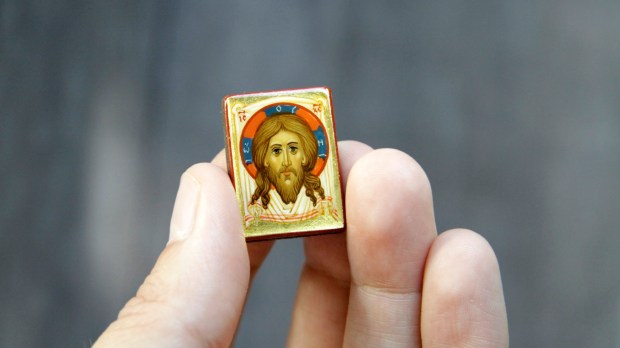Lenten Campaign 2025
This content is free of charge, as are all our articles.
Support us with a donation that is tax-deductible and enable us to continue to reach millions of readers.
Maybe, like at any big gathering, at the Sermon on the Mount the VIPs got front-row seats. The latecomers and the lowly were relegated to the back. The scene is imagined by Catholic Nobel Prize-winning author Francois Mauriac in his Life of Jesus:
“Blessed…Blessed…Blessed.” Those in the back of the crowd, who could hear only this word cried out nine times, might gather that the message was one of good cheer. And they were right. By a transformation more amazing than that of Cana, poverty is changed into riches, and tears into joy. The earth belongs not to the warlike but to the meek.
The paradox of the Beatitudes
One of the greatest moral theologians of the 20th century, Dominican Father Servais Pinckaers, wrote extensively about the Beatitudes. His writings emphasize the paradoxical nature of the Beatitudes:
The Beatitudes often transcend our ideas and feelings and even turn them upside down, so as to lead us further into the reality of things under the guidance of faith. The Beatitudes confront us with all of life’s trials and overturn many of our ideas about happiness. The Beatitudes are the assurance of blessedness where it is least expected. The purpose of the Sermon is to show us what the Holy Spirit wishes to accomplish in our lives here and now through his grace.
By design, Jesus trains his loving gaze on what we like to look at least: our vulnerability, unworthiness, ineptness, shame, our brokenness, hurt, and powerlessness, our feeling forsaken … and therefore alone. And in the Sermon on the Mount he makes this promise: The very things that hold you back will launch you into holiness. Whatever it is that makes us feel ineligible, disqualified, substandard, second class … all our alibis for not trying Jesus reclaims for his Kingdom, endowing them with a priority unheard of before Christ. Our troubles are the tablets where the New Covenant laws will be inscribed.
Blessed and God-like
The Lord’s use of the word “blessed” (makarios in Greek) in his preaching is very deliberate and provocative. The eminent Trappist Scripture scholar, Erasmo Leiva-Merikakis, explains:
For the Greeks, the ‘blessed’ or ‘fortunate ones’ were only the gods, since these were immortal and hence free from the sadness of our mortal life, which always ends in death. A derived meaning is “the privileged” who enjoy riches, a good education, and so on. The Lord declares precisely those persons to be makarios who least resemble the Greek gods. The least privileged in the eyes of the world are precisely those who have the greatest possibility of using their emptiness and weakness in a way meant to induce God to communicate his own life and strength.
The Beatitudes proclaim to the world that morality begins in acknowledging that to be ourselves we need Another. And Jesus is that Other.
The Beatitudes: perfect portrait of Jesus
This is why, more than being a moral code, the Beatitudes are a kind of icon. The Catechism teaches that “the Beatitudes depict the countenance of Jesus Christ and portray his charity” (1717). Fr. Pinckaers comments on this:
The Sermon gradually reveals to us the feelings, the soul, the spiritual face of Christ. Through the Sermon we can perceive the sentiments of Jesus’ heart. The Sermon on the Mount is the most faithful portrait of Christ we possess. Again, if it is true that the Sermon reveals the Holy Spirit’s designs for us, then we can discern in it the characteristics of Christ’s life and the features of his face which the Spirit would reproduce in us, so as to reshape and conform us to the image and likeness of the Son of God.
Our goal in meditating on the Beatitudes is to “relate the words of the Sermon to Christ himself” and in this way “discover how Jesus has fulfilled them in his own life” (S. Pinckaers). By so doing, we receive the greatest verification that the Beatitudes are true. For Jesus begins his life in the poverty of the manger. He mourns publicly at the death of Lazarus. He calls himself meek as if it were a title (Mt 21:5). He hungers in the desert in his time of temptation, and he thirsts on the cross. His mercy extends even to the bestowal of forgiveness to his crucifiers. The cleanness of his heart is revealed for all to see through the opening made in his pierced side. “Peace” is his first word of greeting after the Resurrection. The persecution of his Passion and the insults of Calvary remain Christ’s great glory and reward in heaven—a glory he bears for all to see in the wounds gracing his resurrected body which inspire us to beatitude with him.


